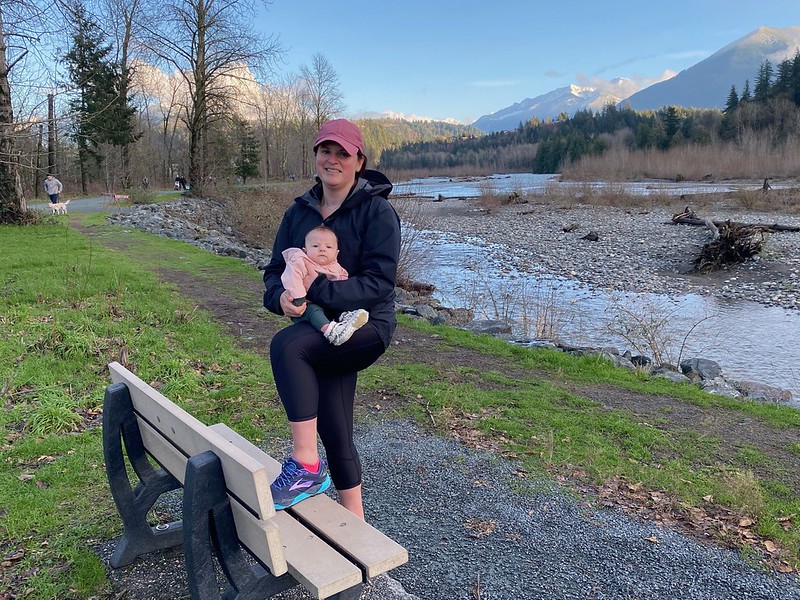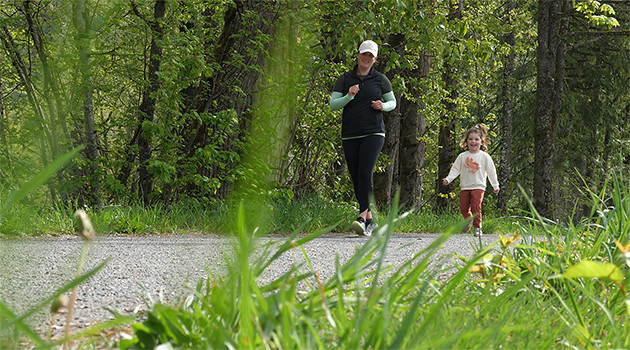Thank you to Dr. Iris Lesser who submitted this very interesting and thought-provoking article which coincides perfectly with International Women’s Day. As women and mothers we really do need to take care of ourselves physically and mentally — you cannot serve from an empty vessel. I am personally going to challenge myself to take a break from my work day for 2 or 3 minutes every hour to do some quick stretching, jumping jacks, or tackle a couple of flights of stairs! I think that is a great idea and very achievable.
A Balancing Act: The Impact of the Pandemic on Women’s Mental Well-Being and Physical Activity
Dr. Iris Lesser, Assistant Professor, School of Kinesiology CSEP-CEP

As we continue to deal with the consequences of the global pandemic we must take note of the inequity this has created among women who have been disproportionately affected by job losses and are suffering economically. Additionally, preventive public health measures altered childcare, amplifying strain on mothers due to remote work and/or changes in work demands with additional childcare responsibilities. While it has been well established that the pandemic has had a negative effect on mental well-being, women were already experiencing high levels of anxiety disorders and more generalized anxiety than men before the pandemic and therefore one could expect that this has been exacerbated.
The ability to engage in physical activity can mediate the stress response and promote well-being. For instance, every session of physical activity has been shown to positively impact symptoms of depression and anxiety and therefore can serve as an acute coping mechanism. This is good news. The bad news is that the majority of Canadians are not physically active, with women significantly less physically active than men. In our study on women’s physical activity and well-being since COVID-19 women experienced significantly more generalized anxiety than men. Women who were engaged in less physical activity due to COVID-19 reported significantly lower mental health scores, lower social, emotional and psychological well-being, and significantly higher generalized anxiety, while active women had improved mental health scores.
So what is the solution? How do we help women and especially mothers cope?
Perceived or real physical activity barriers directly affect physical activity participation. We found that there were significant differences between barriers and facilitators to physical activity and the amount of moderate-vigorous physical activity. Women were specifically impacted by barriers of increased difficultly and challenge in engaging in physical activity during public health restrictions. Our results parallel what is seen outside of the COVID-19 context, with less active women more likely to report barriers to physical activity including fatigue and lack of interest in physical activity than physically active women. Women who reported lower levels of physical activity have expected or perceived physical activity to not be enjoyable, while physically active women commonly report physical activity to be enjoyable. Additionally, self-confidence is more strongly associated with physical activity engagement in women due to concern about body size, shape and athletic ability when performing physical activity. Lastly, lack of time is a common barrier to physical activity among working women and even more so amongst women with children under the age of 15, with lack of childcare cited as a reason for physical inactivity.
So, what is the take-home message? We need to provide simplistic physical activity opportunities for women and mothers…and here is the key…we need them to be enjoyable! Simple enough right? For instance, we know that walking in nature distracts us from the effort of physical activity and allows individuals to exercise at a higher intensity with higher levels of enjoyment. We know that we are more adherent to exercise when we exercise in a group as it is more enjoyable and we especially enjoy being active with others who have similar physical activity challenges. When it comes to enjoyment, we need to re-think society’s perspective of fitness. Joining a Cross Fit class when you hate strength training and high intensity workouts is not going to get you far in the long run. Find something you enjoy and do it every day for the long haul.
We need to be flexible in our work environments. The pandemic has changed the way we work and has given us a prime opportunity to rethink our work day for the better. It’s certainly easier to fit in physical activity when you can drop the commute and easily shower and change after a workout. Can we schedule it into our workday? Can we delve into exercise snacks where instead of trying to find 30-minute blocks we find a few minutes every hour to do a couple of flights of stairs? Rather than simply focusing on the challenges I think it is an ideal time to start finding opportunities to make women and mothers healthier and happier while ensuring we stay connected and are supporting one another. Think of it as a gift to your physical and mental health.

